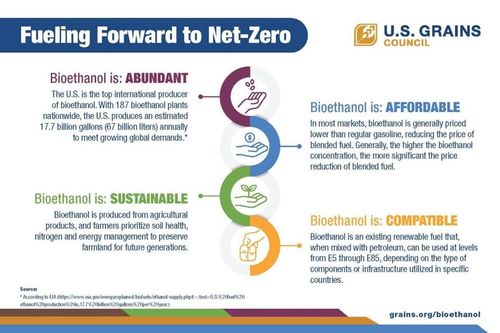USGC publishes new ethanol infographics

The USGC recently released a set of infographics designed to share the environmental and financial benefits of ethanol, the carbon reduction assessment models for SAF and a map displaying ethanol blending policies around the world. / SOURCE: USGC
October 25, 2024
BY U.S. Grains Council
Advertisement
Advertisement
Related Stories
The U.S. EIA reduced its outlook for 2025 biodiesel and renewable diesel production in its latest Short-Term Energy Outlook, released Sept. 9. The 2026 production outlook for other biofuels, which includes SAF, was revised up.
Business aviation is looking at SAF as a key means of reaching carbon reduction and sustainability goals.
Sky’s the Limit
Colocated with the 2025 International Fuel Ethanol Workshop and Expo, this year’s Sustainable Fuels Summit offered key insights into future SAF markets, feedstocks and opportunities.
Five years after the COVID-19 national emergency was declared, gasoline demand, distillate demand, and jet fuel demand all remain less than pre-pandemic averages, according to the U.S. Energy Information Administration.
Ethanol Producer Magazine has announced the 42th annual International Fuel Ethanol Workshop & Expo (FEW) will take place on June 2-4, 2026, at the America’s Center in St. Louis, Missouri.





